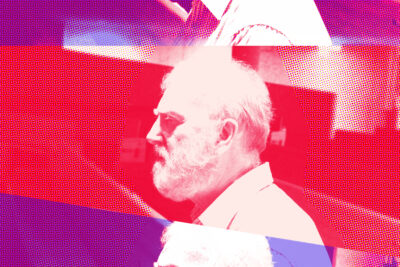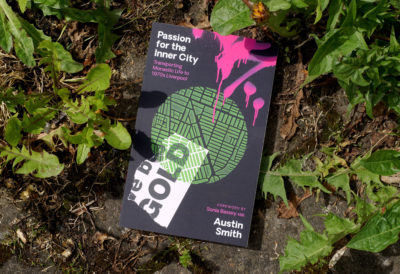The following is an extract from Austin Smith’s Passion for the Inner City, which was recently reworked and republished by our new book imprint, Lab/ora Press. Fr Austin established the Passionist Inner City Mission in Toxteth, and was a much loved and active presence in the Liverpool 8 district for 40 years.
A society which forces people to wait
Most of my waiting in life has been of a luxurious kind. I mean most of the things I have waited for I knew could, and even would, eventually turn up. But there is a kind of waiting which I have never really had to face in any kind of depth. I have never had to wait for something, and something absolutely essential to my person as a human being, knowing in my heart of hearts my waiting was purposeless. To be creatively human, and humanly creative, I have never had to wait on the good pleasure and the kind services of another human being. I have never had to say to myself, ‘I will be what I want to be when that other person or those other persons radically change their lives’.
It is true that great artists and, indeed, the great mystics, have all experienced the pain of waiting, but they knew that it was part of the process necessary to final fulfilment. Their waiting was biblical—I mean, there was in the People of God an assurance that God would come. It was hard to wait for the day, but the strength of the authority left no doubt in their minds that He would one day be amongst them. Therefore, their very time of waiting could be turned into a process of preparation; it could have the gentle and inspiring themes of joy and expectancy in it. In the words of one of my Passionist brethren, Carroll Stuhmueller: ‘The motif of waiting … nurtures that type of faith essential for contemplative prayer… Waiting can be as joyful as a child’s expectation of birthday gifts or it can drive a person or an entire people to desperation.’
The poor are waiting—for what? A radical change of values and priorities in the lives of those who have benefited from institutions and their resources.
We say to our friends: “Wait, it will happen, you are still young.” But for many of my friends in the inner city and millions of the poor of this world, this is not the nature of their waiting. Indeed, if I were to choose one word to highlight the experience of the powerless at its deepest level of desperation, it is their waiting. They are subjected to the psychological violence of waiting. And waiting for what? In the long run, a radical change of values and priorities in the lives of those who have benefited (either by design or chance) from the institutions and the lifestyles created by those institutions which have cornered the access to the resources.
It is this kind of waiting which I find painful to watch in the lives of those with whom I exist. They wait for the dole; they wait for the hint of employment; they wait for a supplementary benefit; they wait for a sector of society to really live up to the philosophy of equal opportunities; they wait for the bureaucratic system to check its files; they wait for a white racist society to admit its own spiritual paralysis which prevents it facing up to itself with honesty.
A society which forces people to wait, either by way of its privileged classes or its bureaucratic system or a combination of both, is a society which has chosen the path of oppressor. “Wait till we get inflation or our balance of payments right, then we will give realistic thought to those who are crying for a minimal human existence,” is the articulation of a society which is suffering from spiritual bankruptcy. The truly noble society does not work towards a secure political and economic philosophy in which the plight of the poor will be given consideration; the truly noble society begins its thinking and planning from the position of those who are most in need. Positive discrimination is a logical rider to the Christian vision of life.
Passion for the Inner City is available now for only £5 from the Lab/ora Press shop, or at other bookstores below.
Paperback: Waterstones | Blackwells | Book Depository | Foyles
eBook: Kindle Store | Kobo Store
Related Stories

To Illumine the Mind: the Catholic diaspora in Paris
In Paris, Martin Coffey leads a church overflowing with working class immigrants. The picture of religion in France, he tells us, is not what you think.
Mar 01 2024

Positive Faith present a World Aids Day service, ‘The Reason for Hope’
Reflections, music and scripture as well as opportunities for sharing on this World Aids Day online service.
Dec 01 2023

Dust to Dust: Passionist Life in Haiti
In Port-au-Prince, Haiti, Fr Rick Frechette has been the cornerstone of a Passionist community all giving their lives for the beleaguered nation.
Oct 31 2023

